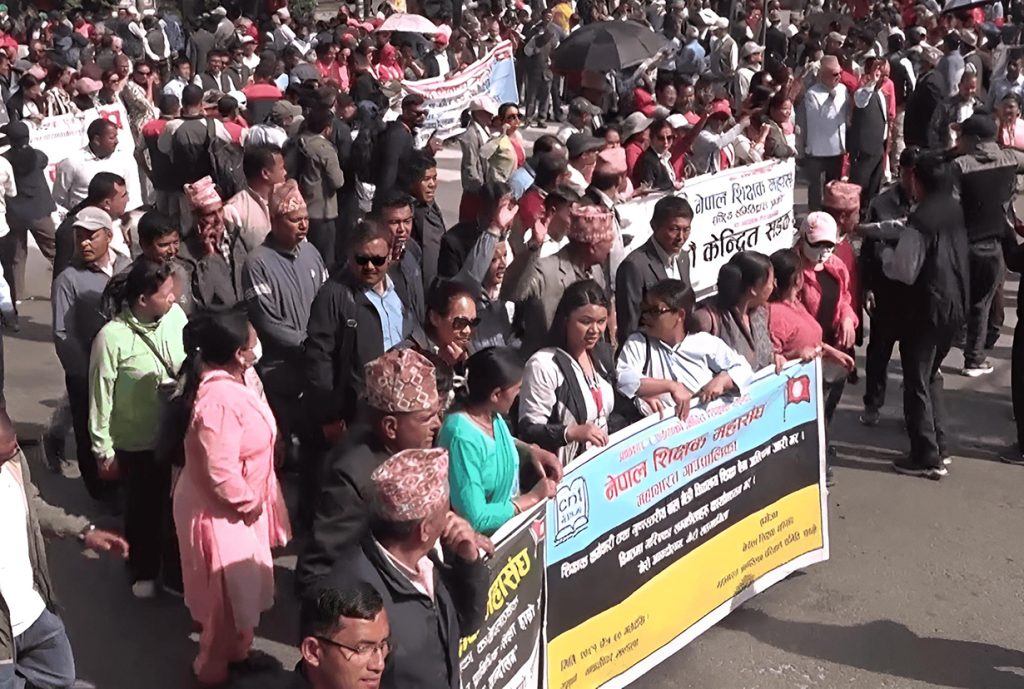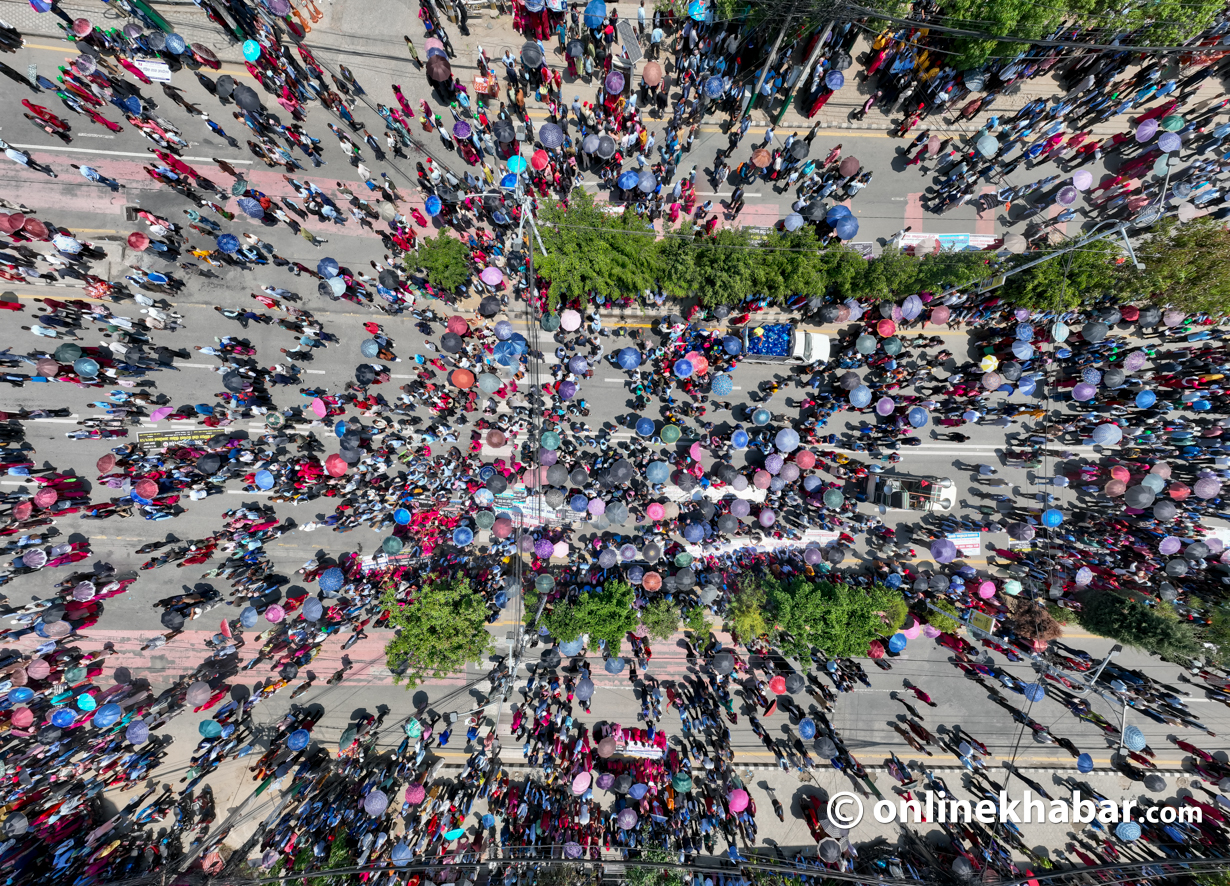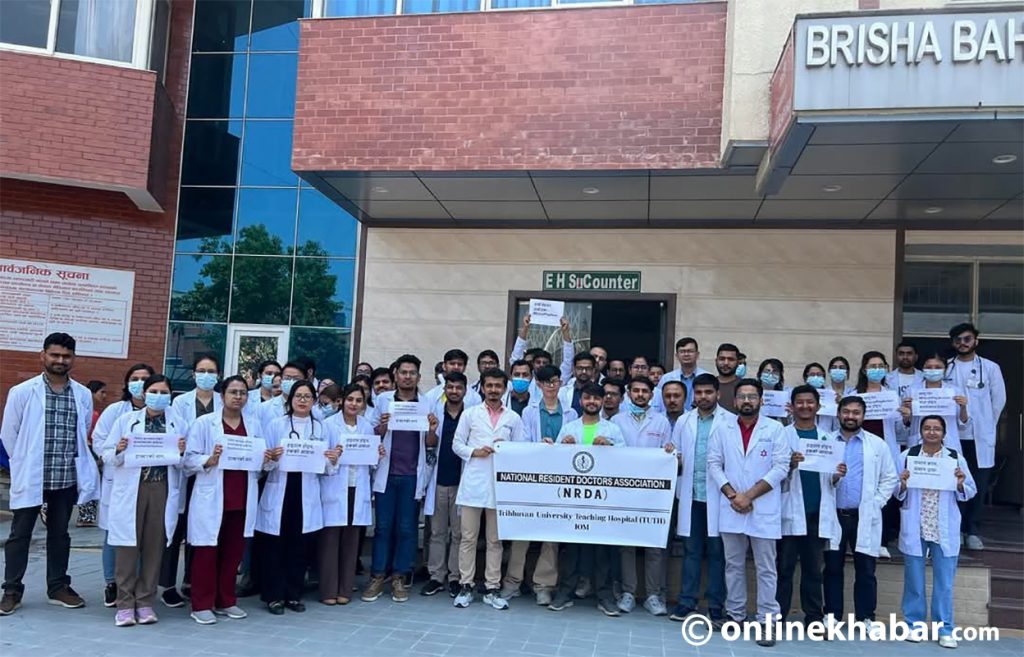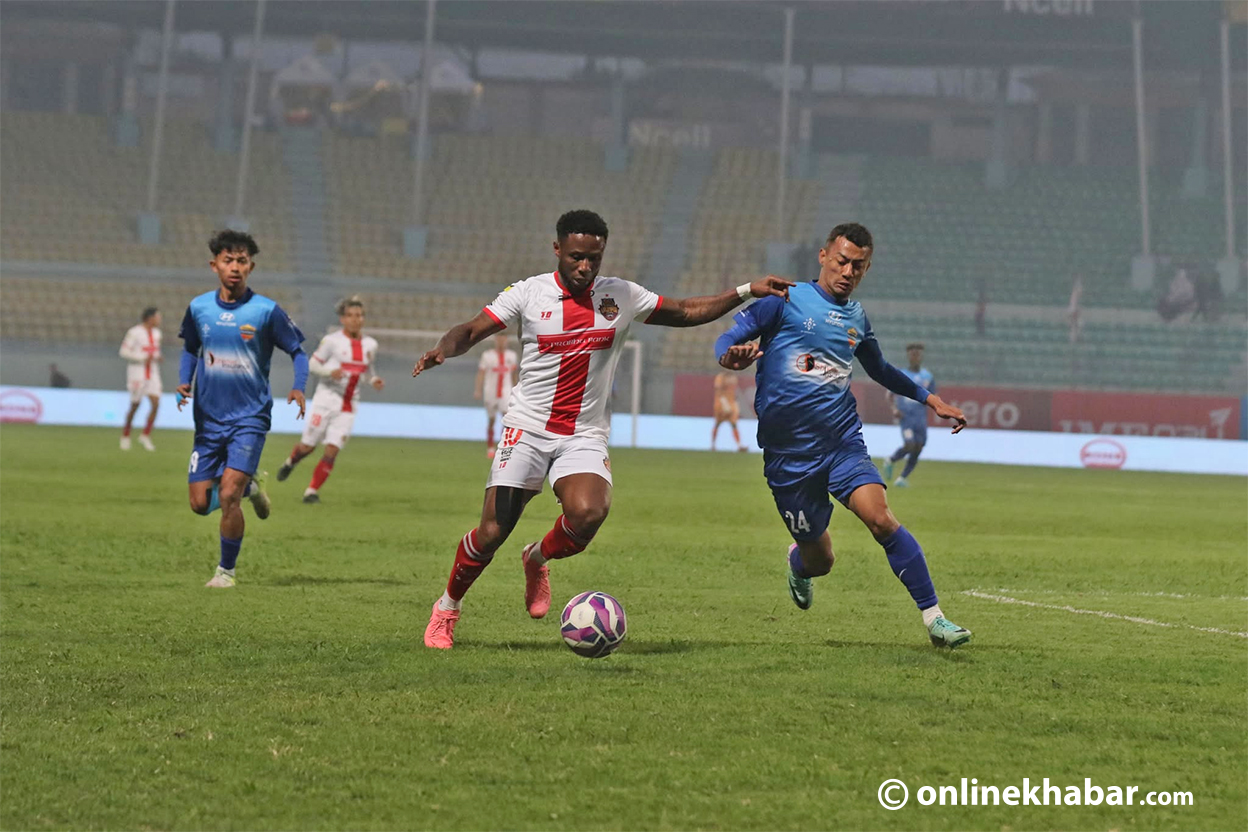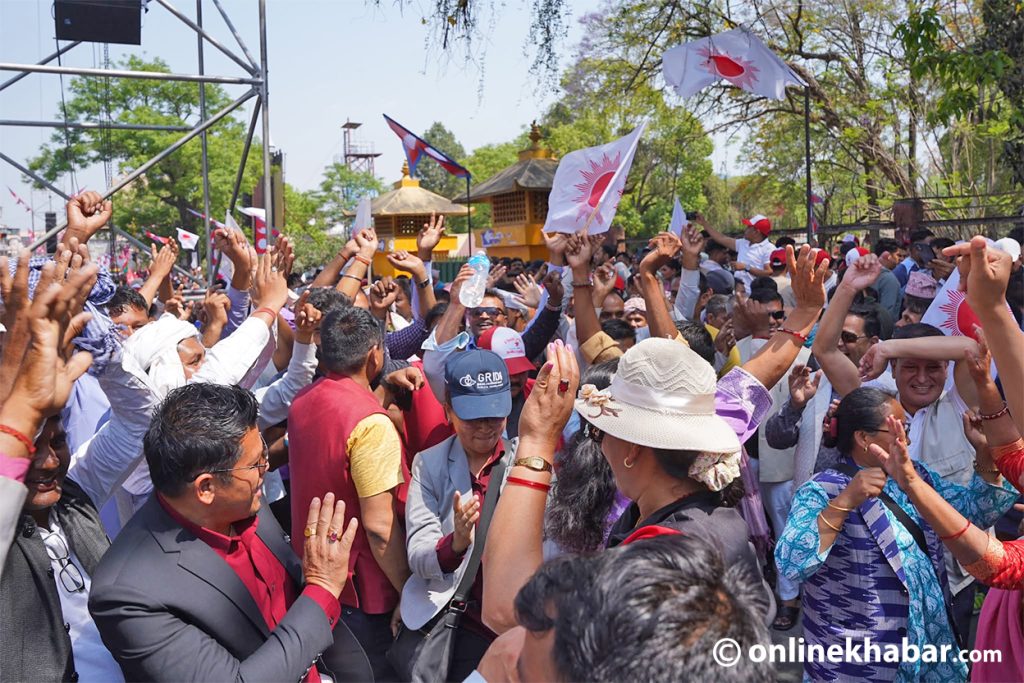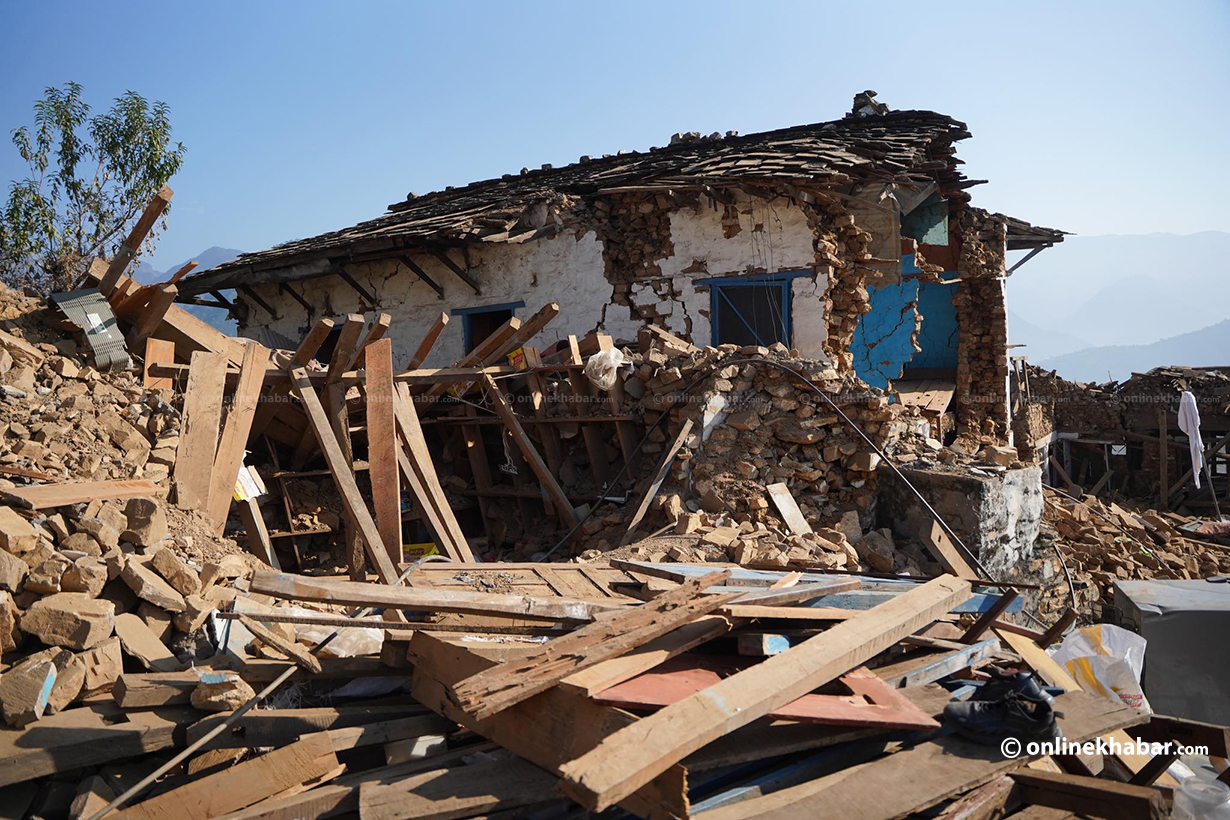
Kathmandu, April 25
Doctors at government hospitals have shut down outpatient department (OPD) services demanding that resident doctors in private medical colleges be provided the same subsistence allowance as those in government institutions.
The Nepal Medical Association had called for a boycott of all services except emergency and intensive care starting Thursday, resulting in widespread disruption of OPD services across government hospitals in the Kathmandu Valley.
At Bir Hospital, both resident and senior doctors joined the protest and gathered at Maitighar Mandala, leading to a complete halt in OPD operations.
Bir Hospital Director Dr Dilip Sharma confirmed that the OPD was non-functional on Friday. “Only a few patients who had booked tickets online were seen. Others could not be attended to because the doctors were participating in the protest,” he said in an interview with Onlinekhabar.
According to Dr Sharma, admitted and emergency patients are still receiving care, but if the issue is not resolved by Sunday, the entire health service could be severely affected. More than 2,000 patients typically visit Bir Hospital’s OPD daily.
The National Trauma Center also reported a complete suspension of its OPD services. Director Dr Badri Rijal said even non-emergency operations have been halted. “All doctors have submitted letters stating they will not work and have joined the protest,” he added.
Similarly, OPD services at Kanti Children’s Hospital have been shut down. Director Dr Pankaj Ray confirmed that resident doctors have boycotted work. “Health services are affected, and if the situation continues on Sunday, there will be further disruptions,” he said.
At Patan Hospital, resident doctors have joined the protest, but other doctors have stepped in to keep services running, according to Director Dr Ravi Shakya. “While resident doctors are on strike, departmental doctors are continuing OPD operations,” he said.
The boycott has left patients arriving at hospitals without care, creating confusion and hardship.
The Nepal Medical Association formally announced the OPD service boycott for Friday. Protesting doctors gathered at Maitighar Mandala to demonstrate.
Widespread support from government doctors

Dr Sheshraj Ghimire, coordinator of the struggle committee formed by resident doctors, said all doctors in government hospitals have now joined the protest. “Senior and resident doctors from government hospitals across the country, as well as those from private medical colleges, are standing together in solidarity,” he said.
Resident doctors have been protesting on the streets for three weeks over the government’s failure to implement the subsistence allowance provision. On February 7, the Medical Education Commission decided that resident doctors in private medical colleges should receive a monthly allowance of Rs 48,000 – equivalent to the eighth level government officer. However, despite two and a half months passing since the decision, private medical college operators have failed to implement it.

In developed countries, postgraduate (PG) students are not charged tuition fees, and even in Nepal’s public hospitals, they receive compensation equal to that of medical officers. Yet, private colleges in Nepal charge up to Rs 2.3 million for PG residency programs, despite not requiring additional infrastructure or faculty. Meanwhile, resident doctors who work long hours caring for patients are paid very little.
Resident doctors in government hospitals receive Rs 48,000 monthly, while those in private medical colleges are forced to work for just Rs 18,000–20,000, often going without pay for three to four months.
Health Minister Pradeep Poudel has warned that the government will not cooperate with private medical colleges if they fail to provide resident doctors with the promised allowance.
“No dealings related to the ministry will proceed unless private medical colleges implement the Rs 48,000 allowance,” said Minister Poudel. “There is no need for further arguments on this matter.”








